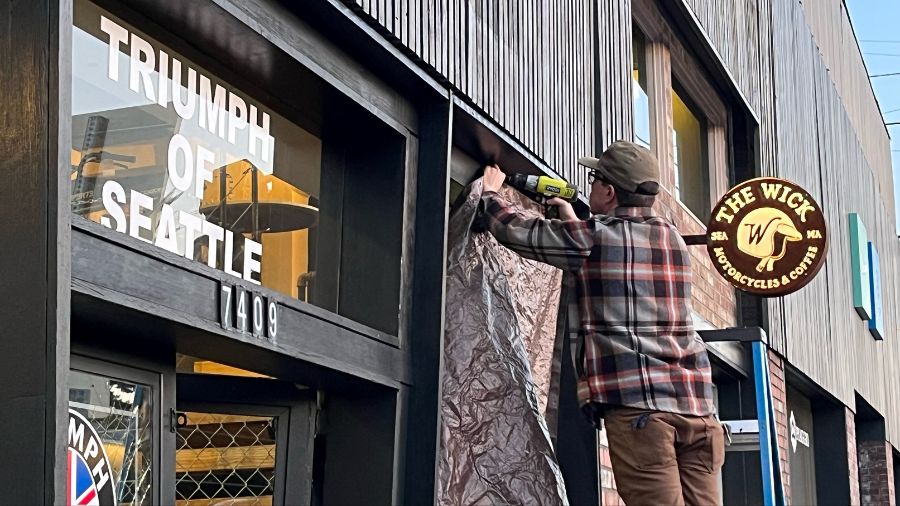Appeals court claims DC sniper, Bellingham native Lee Boyd Malvo must be resentenced
Aug 29, 2022, 12:15 PM

In a 2004 photo, convicted sniper Lee Boyd Malvo enters a courtroom in the Spotsylvania Circuit Court in Spotsylvania, Va. (Mike Morones/The Free Lance-Star via AP)
(Mike Morones/The Free Lance-Star via AP)
A Maryland Appeals Court ruled that Lee Boyd Malvo, who was convicted for his involvement in a shooting spree that killed 10 people in Washington D.C. in October 2002, must be resentenced.
Malvo and his mentor, John Allen Muhammad, shot people in Virginia, Maryland and Washington, D.C. during a three-week period in 2002 with a sniper rifle in what is now known as the D.C. sniper attacks or the Beltway sniper attacks. Malvo was 17 at the time while Muhammad was 41.
Their crime spree started months earlier, as the pair committed murders and robberies in the states of Alabama, Arizona, Florida, Georgia, Louisiana, Maryland, and Texas before heading to Virginia and Washington, D.C., which resulted in seven deaths and seven wounded.
In ten months, the snipers killed 17 people and wounded 10 others. One of the victims injured was a child.
Supreme Court review of Boston Marathon bombing case could have wider impacts
Malvo came to the U.S. in 2001, and lived in a homeless shelter in Bellingham, Washington, where he attended high school. While in Tacoma, according to his statements to investigators, Malvo shoplifted a Bushmaster XM-15 from Bull’s Eye Shooter Supply and practiced his marksmanship on the Bull’s Eye firing range adjacent to the gun shop.
In 2006, Malvo pleaded guilty to six counts of first-degree murder in Montgomery County. He was sentenced to life without parole in both Maryland and Virginia and is currently held at the Red Onion Supermax State Prison.
Muhammad was sentenced to death and was executed in Virginia in 2009 by lethal injection. Malvo voluntarily testified against him, and in 2012, claimed Muhammad sexually abused him.
The Maryland Appeals Court stated that the Supreme Court ruled a sentence of life without parole for youthful offenders is not permitted under the Eighth Amendment in decisions that occurred after Malvo’s sentencing.
“If a sentencing court determines that the offender’s crime was the result of transient immaturity, as opposed to permanent incorrigibility,” Judge Robert McDonald wrote.
McDonald also wrote that it’s ultimately not up to the Court of Appeals to decide the appropriate sentence for Malvo, or whether he should ever be released from his Maryland sentences.
“We hold only that the Eighth Amendment requires that he receive a new sentencing hearing at which the sentencing court, now cognizant of the principles elucidated by the Supreme Court, is able to consider whether or not he is constitutionally eligible for life without parole under those decisions.” McDonald wrote.
At his sentencing that year, the prosecutor stated that Malvo, once under the sway of an “evil man,” had changed and “grown tremendously” since his participation in the crimes, according to the Court of Appeals ruling.













